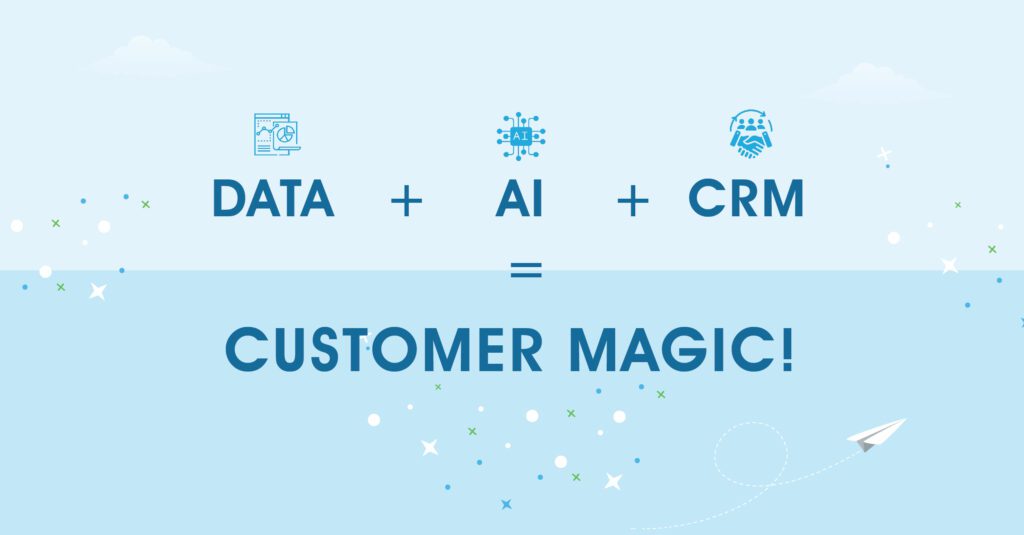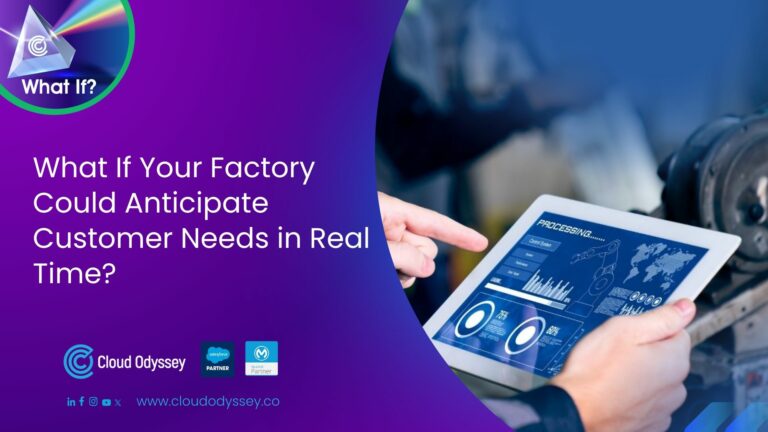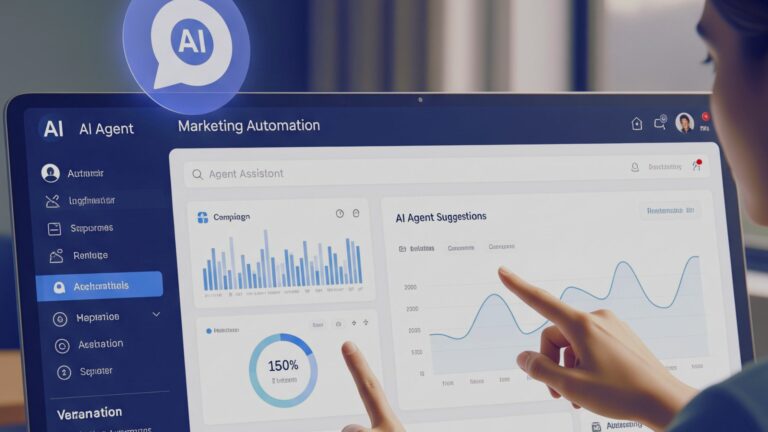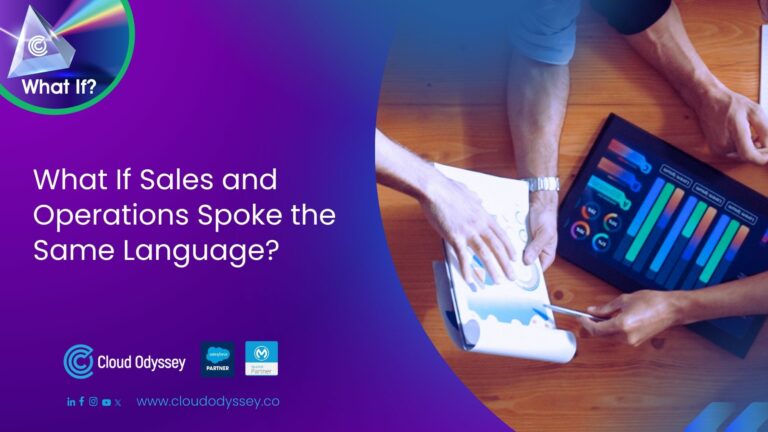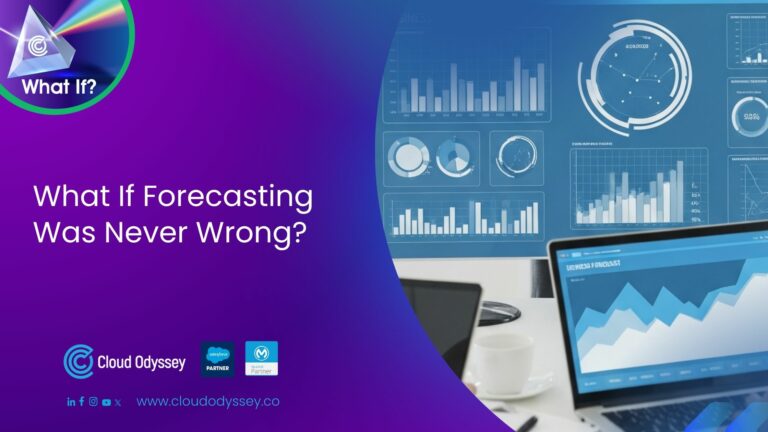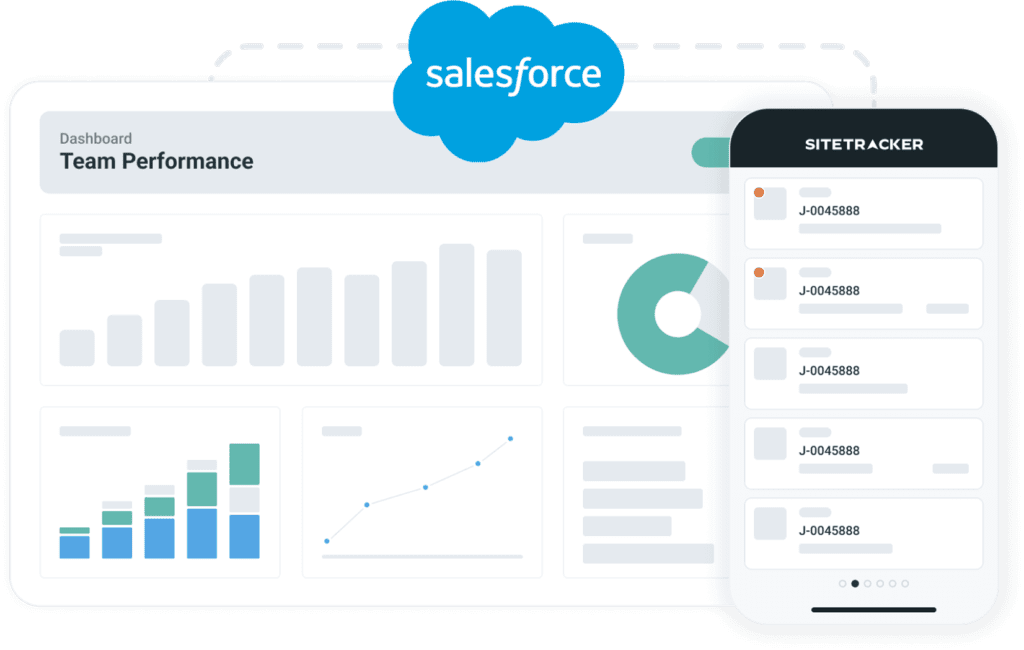The business landscape is constantly evolving, and the key to staying ahead lies in harnessing the power of data, artificial intelligence (AI), and Customer Relationship Management (CRM) working in unison. Salesforce Commerce Cloud (SFCC) embodies this powerful equation, empowering organizations to transform customer experiences through real-time insights, unified data, and intelligent automation.
This article delves into the magic behind SFCC’s Data + AI + CRM approach, exploring how these elements work together to unlock a new level of customer engagement.
Einstein’s Insights: Illuminating the Path
The Power of Einstein AI
Central to SFCC’s prowess is Einstein, an AI-driven engine that continuously generates valuable insights and recommendations. Imagine having a virtual data scientist constantly analyzing customer behavior, preferences, and market trends to provide actionable intelligence in real-time. Whether it’s predicting buying patterns, identifying upsell opportunities, or personalizing recommendations, Einstein enables organizations to deliver tailored experiences that resonate with their audience.
We connect to Salesforce Einstein Discovery, train a model using customer data, generate insights, and leverage them to personalize customer interactions. This seamless integration empowers organizations to anticipate customer needs and deliver exceptional experiences at every touchpoint.
Einstein, Salesforce’s built-in AI, is more than just a buzzword. It’s the engine that drives personalized customer interactions. Here’s how:
1. Predictive Analytics: Einstein analyzes historical data to predict future behavior. Whether its recommending products, identifying churn risks, or suggesting next best actions, Einstein empowers businesses to make informed decisions.
2. Natural Language Processing (NLP): Einstein understands and processes natural language. Chatbots, sentiment analysis, and personalized responses—all fueled by NLP—enhance customer experiences.
3. Image Recognition: Visual search, product recommendations based on images, and even fraud detection benefit from Einstein’s image recognition capabilities.
4. Optimize Marketing Campaigns: Einstein can analyze the effectiveness of marketing campaigns and suggest adjustments for improved performance. This includes identifying the most responsive customer segments and tailoring messaging accordingly.
5. Optimize Marketing Campaigns: Einstein can analyze the effectiveness of marketing campaigns and suggest adjustments for improved performance. This includes identifying the most responsive customer segments and tailoring messaging accordingly.
Einstein Predictive Model
# Python code snippet
from salesforce_einstein_platform import EinsteinPredictiveModel
model = EinsteinPredictiveModel(“customer_churn_model”)
model.train(data=”customer_data.csv”, target=”churn_status”)
predictions = model.predict(new_data=”new_customers.csv”)
print(predictions)
This is a simplified example, but it demonstrates how machine learning algorithms can be used to identify patterns and make predictions based on customer data.
Flow Automation: Orchestrating Customer Journeys
Complementing Einstein’s insights is Flow Automation, a robust toolset within SFCC that enables organizations to automate processes and workflows intelligently. By combining AI-driven insights with automation capabilities, organizations can create a generative CRM—the intelligent heart of customer engagement.
The Flow Advantage
Salesforce Flow is the Swiss Army knife for process automation. When combined with AI insights, it becomes a powerful tool for orchestrating customer journeys:
1. Automated Follow-Ups: Flow triggers personalized follow-ups based on customer behavior. Whether its abandoned carts, post-purchase surveys, or renewal reminders, Flow ensures timely communication.
2. Dynamic Pricing: Flow adjusts pricing dynamically based on demand, inventory, and customer segments. Imagine personalized discounts or surge pricing during peak hours.
3. Case Escalation: Flow detects high-priority cases (angry tweets, urgent inquiries) and escalates them to the right teams. AI-driven prioritization ensures efficient resolution.
4. Automated Product Recommendations: Based on a customer’s browsing history, Flow can automatically display personalized product recommendations on the website, increasing the likelihood of a purchase.
5. Triggered Email Campaigns: When a customer demonstrates purchase intent (e.g., adding items to a cart), Flow can trigger a targeted email campaign offering a discount or additional product information.
6. Automated Churn Prevention Actions: If a customer shows signs of dissatisfaction, Flow can trigger automated outreach efforts, such as sending a personalized email or offering a chat support option.
Flow for Abandoned Cart Recovery
Start Event: Customer Abandons Cart
-> Send Reminder Email
-> Wait for 24 hours
-> Check Cart Status
-> If Still Abandoned
-> Send SMS Reminder
-> Create High-Priority Case
-> Else
-> End Flow
We utilize Flow Automation to create a workflow for abandoned cart recovery. By setting triggers based on Einstein’s insights (e.g., identifying high-value items abandoned), we automate personalized actions such as sending reminder emails and offering discounts. This proactive approach not only enhances customer engagement but also drives conversion and loyalty.
Apex Code
trigger RecommendProducts on ProductViewed {
for (ProductViewed pv : Trigger.new) {
List<Product> recommendations = [
// Logic to identify recommended products based on customer and product data
];
// Update the customer record with the recommended products
}
}
This code snippet demonstrates a basic trigger in Apex that recommends products based on a product viewed event.
3. Data Cloud Transformation: Harmonizing Customer Insights
Centralizing and harmonizing customer data across sales, service, marketing, and commerce is essential for meaningful interactions. SFCC’s Data Cloud, purpose-built for the Salesforce platform, facilitates this transformation by providing a unified view of customer information.
The Data Cloud Advantage
SFCC’s Data Cloud bridges data silos, harmonizing customer data across sales, service, marketing, and commerce. Here’s how it transforms the CRM landscape:
1. 360-Degree View: Data Cloud aggregates data from various touchpoints—website visits, social interactions, purchase history—creating a holistic view of each customer.
2. Personalization Fuel: Unified data enables hyper-personalization. Imagine tailoring product recommendations, content, and pricing based on a comprehensive understanding of each customer.
3. Compliance and Governance: Data Cloud ensures compliance with regulations (GDPR, CCPA) by managing consent, data retention, and privacy settings.
4. Improve Decision-Making: With access to clean, consolidated data, businesses can make data-driven decisions that optimize marketing campaigns, enhance customer service, and drive sales growth.
5. Boost Collaboration: The Data Cloud fosters seamless collaboration across departments. Sales teams can leverage marketing insights, while service reps gain a holistic view of the customer’s journey.
Data Cloud Query
— SQL-like query
SELECT customer_id, purchase_amount
FROM customer_purchases
WHERE purchase_date >= ‘2022-01-01’
We leverage Data Cloud to integrate customer data from various sources and create a unified profile. By analyzing this profile, organizations gain valuable insights into customer behavior, preferences, and
interactions across channels. These insights inform strategic decisions, enabling organizations to optimize marketing campaigns, refine sales strategies, and enhance customer service.
The Magic Unleashed
In the digital era, the convergence of Data + AI + CRM is reshaping the way organizations engage with customers. Salesforce Commerce Cloud epitomizes this evolution, empowering organizations to harness the power of data, AI-driven insights, and CRM capabilities to deliver exceptional customer experiences. By embracing Einstein’s insights, Flow Automation, and Data Cloud Transformation, organizations can unlock the true potential of Customer Magic and thrive in an increasingly competitive landscape.
The Data + AI + CRM equation isn’t just theoretical—it’s the magic that transforms customer interactions. As businesses embrace this convergence, they create memorable experiences, drive loyalty, and stay ahead in the competitive landscape.



